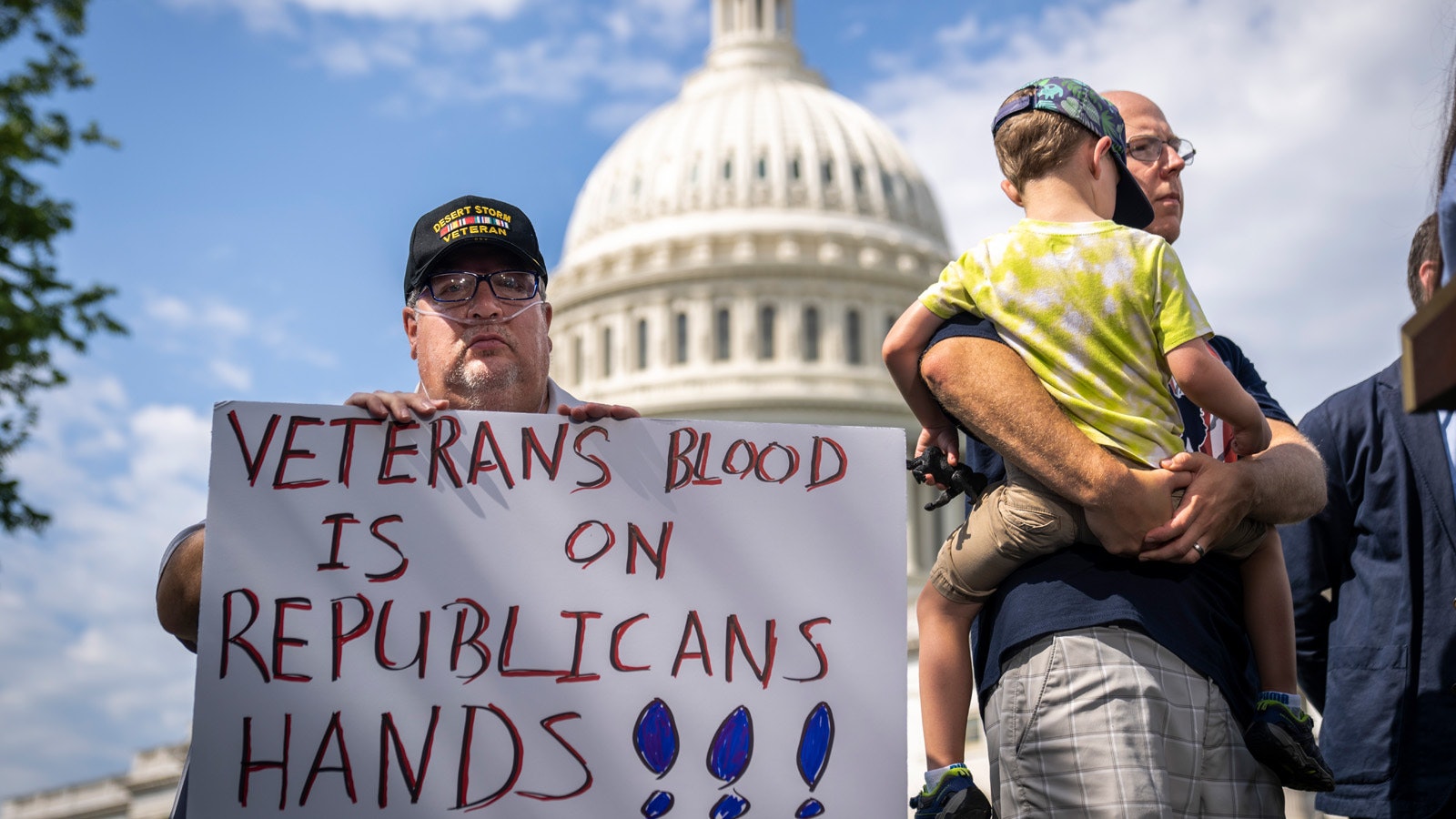The U.S. Senate approved with an overwhelming majority on Tuesday a measure to expand health care and benefits for 3.5 million of America’s veterans injured by toxins such as Agent Orange in Vietnam, burn pits in Iraq and Afghanistan and the cleanup of radioactive chemicals in other locations.
“It’s about time there is recognition for these illnesses these veterans experienced,” said Cody resident Vince Vanata, an Iraq War veteran.
Sen. Cynthia Lummis was one of 11 Republicans to oppose the Promise to Address Comprehensive Toxins Act. No Democrats voted against the bill.
“While Senator Lummis believes it is critical that we care for veterans who were exposed to toxic burn pits during their service, she could not support this bill because of the price tag and illnesses included,” Abegail Cave, a spokesperson for Lummis said.
The $280 billion PACT Act is considered the largest expansion of care in VA history. Under the bill, veterans will no longer have to prove illnesses caused by toxic exposures suffered in the military to get VA coverage.
By Tuesday night, the U.S. Department of Veterans Affairs had already set up a web page explaining the new law and who would be eligible for new coverage under it.
Since there is no clear evidence directly linking burn pits to respiratory illness and cancer, veterans had to advocate for themselves to receive healthcare benefits and could have been turned down if they didn’t provide evidence linking the two.
Vanata said it was very difficult for veterans who had less direct exposure to dangerous elements, such as those who were stationed or camped outside a burn pit, to prove their case to the VA. Also making it difficult to prove a connection for these veterans is that for many, symptoms from their exposure to dangerous elements doesn’t start showing up until decades after the fact.
Vanata said with the passage of the PACT Act, these individuals and others previously not covered, like Navy members exposed to radiation after the 2011 Fukushima nuclear disaster, will now be treated under the VA.
“It’s a shame it wasn’t addressed years ago,” Vanata said.
The bill codifies 23 burn pit and toxic exposure-related connections to the agency’s list of presumptive service connections and expands presumptions related to exposures to Agent Orange for those who served in Thailand, Cambodia, Laos and Guam.
Another benefit of the bill is that it will allow for more survivor’s compensation given to the family of the veterans who die of toxin-caused afflictions.
Cave said Lummis was troubled by the inclusion of high blood pressure as a symptom assumed to be caused by military service, considering 74% of Americans over the age of 60, regardless of military service, have high blood pressure.
“The inclusion of this long list of diseases ballooned the bill cost to more than $277 billion,” Cave said.
Lummis tweeted Tuesday night that 168,000 vets are currently waiting for VA services. She expects that number to jump to more than a million with the passage of this bill. Vanata said he knows veterans who died before they could be helped by the bill, but others who have received help for Agent Orange.
Lummis supported an amendment made by Sen. Marsha Blackburn, R-Tenn. This failed amendment would have allowed veterans to seek care at health care facilities in communities across the country.
Lummis also opposed the initial version of the bill that passed in June. Due to a technical error, another vote had to be taken on the bill, and many Republicans indicated they would be changing their vote. This was due to an argument over which portion of the federal budget would be used to pay for the $280 billion worth of funds for veteran health programs. Republicans also criticized Democrats for shifting $400 billion in discretionary spending to mandatory spending with the bill.
But those detractors came under pressure to support the bill after veterans started camping out on the U.S. Capitol steps. Those veterans had a high-profile ally in Jon Stewart, the former “Daily Show” host, who criticized senators for stalling on the bill during a press conference last Thursday.
“Can we please not force veterans, disabled from their heroism and sacrifice, to stand outside the Capitol building, days on end, waiting on this Congress to do the thing they already did on June 16? It passed 84 to 14. Nothing changed in it,” Stewart said on Monday.
Sen. John Barrasso voted to support the bill on Tuesday. Laura Mengelkamp, a spokesperson for Barrasso, said he voted against an earlier version of the bill proposed last week because he wanted to continue to discuss the legislation and amendments he thought could have been made to it to make the bill stronger.
“As a physician and growing up with a father who fought in World War II, Senator Barrasso is committed to ensuring veterans in Wyoming and across the country have access to the care and benefits they deserve,” Mengelkamp said.
Although U.S. Rep. Liz Cheney voted against an original version of the bill in March, she voted to support a new version on July 13. She also co-sponsored similar legislation that would require the VA Department to document, track, and then notify Congress of specified data points related to exposure cases, as reported by veterans to the Department.





